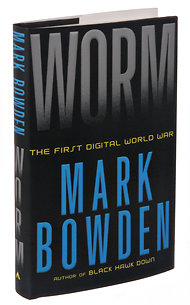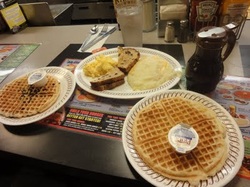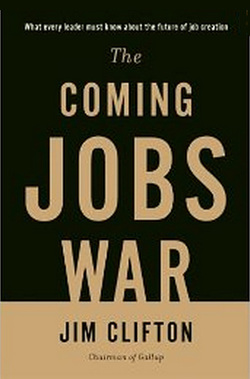
Amazon Link
Wikipedia entry for Cixin Liu Twitter link Cixin Liu's Blog - written in Chinese Twitter link to Paul Fischer who recommended this to me.
0 Comments

This is one book that I think all high school students should read. Not only did Julie Murphy nail what it is like being a high school student, but she delivers a great message about self image, body image, acceptance and love.
I can not recommend this book enough!!! Go buy this now, read it and pass it on to your friends. Twitter: @andimJULIE Julie Murphy's Official Site Amazon's page for this book 
This is a new twist on the alien invasion story. Soon to be a motion pictures, you should read this before it hits the silver screen. This is the first book in his series.
Twitter: @RickYancey Amazon's page for the book Rick Yancey's official site IMDB page for the movie Movie Trailer 
This is a great story about a girl how throws caution to the wind to be with a boy.
Nicola Yoon - official site Amazon's Page for the book  Looking for a wake up call about our digital lifestyle? This book just might offer it up to you. Mark Bowden, a journalist with the Philadelphia Inquirer and a contributing writer for Vanity Fair, Rolling Stone and others, explored the 2008 spread of the Conficker worm, a piece of computer malware that many tech experts worried could have devastated the internet. And who saved our digital lives? It was no other than a rag-tag, volunteer group of techies and geeks that dedicated themselves to a cause that they saw as nothing less than the age-old battle between good and evil. The Confiker virus started to show up in late 2008 and was noticed by experts int eh security field. These professionals had the job of monitoring and tracking down viruses as they emerged. This one, a worm, was particular noteworthy because it spread extremely rapidly and was expertly written. The code used to create this worm showed that it was created by someone with an extremely deep knowledge of how these viruses worked and how to create something particularly potent. The Glaze What did I think of it? Bibliography  Why are we so afraid of grits? The staple of almost every southern home is something that most Yankees detest, running the opposite direction from. Grits, or the boiled grains of ground corn, has the texture of cream of wheat and a bland taste. Most southerns like to serve them with sugar or cheese, but the dish can be quite elaborate, including chives, mushrooms, fruit or vegetables. This past weekend, I was in Bristol, Tennessee for the NASCAR race. One morning, we stopped by a ubiquitous Waffle House. The 24-hour breakfast joints are small, long restaurants featuring a long countertop from behind which the servers take orders and the cooks whip up eggs, waffles, and grits. When we ordered, one of my buddies told the waitress to hold his grits. Our server, a kindly old grandmother-type, gently but forcefully let us know that we were going to be eating our grits before she bought out any other food. Now I know she was just playing with us, but I also know a lot of people that can not stand the creamy goodness. I personally like mine with sugar and butter and don't see why so many people run the other way. Try it and see; I am sure you will like them.  Jon Carl and I read Jim Clifton‘s The Coming Jobs War for our CODE book study. This was a recommendation by Kevin Honeycutt who spoke at the 2012 eRevolution Learning conference at North High School. In his book, Clifton examines America’s standing in the world economy; by looking at GDP and Gallup‘s worldwide longitudinal survey Titled “The State of the Global Workplace“. He makes the case that if America wants to continue its place as the leader in the world economy, America needs to focus on innovation and invention. The only way to cement its place of dominance is for the United States to foster an environment where entrepreneurship creates the desire to experiment with new products, better methods and unknown technologies. The main goal of this business change is to create jobs, not just more jobs, but more jobs that allow workers to prosper. These jobs provide more than better pay; workers develop a more positive attitude about their world because they feel they are making a difference. They understand the importance of their place in the economy because they are more than just a cog in the machine; they are appreciated by their supervisors and their input is sought out, valued and implemented. Clifton dedicates a chapter, titled K12 Schools – Where Entrepreneurs Are Created, to what he sees is the role of schools in this coming jobs war. He believes that schools should foster a similar attitude where they promote and encourage free thinking, entrepreneurship and creativity. If schools can produce more of these creativity types, then they will go out into the workforce and be the next generation of great American inventors and leaders. They will shape the direction of business, technology, the economy and social trends, all the time advocating the American way. It is only through innovation and invention that America can hope to retain its position in the world economy and not watch emerging countries like India and China pass us by. This was our first experience reading a book on a digital reader. I downloaded my copy off of Evansville Public Library‘s website using their Overdrive App; Jon bought his copy off of Amazon. Personally, I liked the convenience of the eReader, but found that for a book like this where I was taking notes and studying the message, it was not as easy to leave myself notes. Overdrive does have a way to leave notes, but it was cumbersome to go back and reread them. Jon felt that it was easy to read and liked to add bookmarks to reference things later. While he likes the nostalgia of a real book, he sees where the ease and convenience of eReaders could make a difference in the classroom. This article was original written as part of book study I did with Jon Carl in the first year of the CODE group and it was originally posted here on the CODE website. I recently finished the book Partials by Dan Wells. This post-apocalyptic novel provides an interesting insight into government and the personal spirit of young adults.
This book first jumped out to me when it appeared on Young Adult Books Central's website. The site, dedicated to reviewing young adult books, was asking readers to vote for the best books of 2012. Partials appeared in their dystopian category. The American government created an army of genetically-engineered humanoid soldiers to help in a war that they were waging. But when these "Partials" turn on humanity, the war becomes between humans and their organic creations. As that war comes to a bloody end, a super virus is released, wiping out the resistant-free humans. The American population is whittled down to less than 50,000, almost all of which are huddled on Long Island, trying to piece back the human race. The heroine of the story is 16-year-old Kira Walker, a medic and virologist-in-training, who is desperate to find the cure to RM, the virus that annihilated the population. RM also kills babies as they are born, leaving the remaining humans unable to reproduce. The war has been over for 14 years, but the effects are still being felt and the those that survived are slowing aging themselves to extinction. No one has been born alive in those 14 years. The government's answer to this crisis is the Hope Act, a law that states all female must get pregnant as soon as they can, as often as they can, once they turn 18. The punishment for disobeying the law includes jail and forced insemination. Using the law of averages, the government believes that eventually a baby will be born that will survive; more babies means more chances for a live birth. As the story goes along and the government is becoming more desperate, that ages is lowered to 16. Kira, in an attempt to find the cure to this illusive virus, sets off on a quest off of Long Island to find a Partial from which she can collect biological samples to test. The government on Long Island refused to sanction the venture, so she sets off on her own with a small band of friends. When the party does find the Partials, their plan to kill one for samples ends up turning into bringing one back alive. This sets off a series of events that are worthy of the best political thrillers, full of intrigue, plots within plots, scapegoating and backup plans. On the surface, Kira is given five days to conduct her research, but in the background she is being set up as the catalyst for a consolidation of power by the Senate. I normally like political thrillers, so this book appealed to my sensibilities, but I found more in this. It would be easy to write this book off a just another teen sci-fi book that relies on the now-popular dystopian theme for a backdrop for teen romance. True, that was there, but the messages about the power of government was an interesting one. While I would caution that those political commentaries were soft, not hard hitting, they were there. Where is the line between government control and the ability to self-determine what happens to your body? I almost saw this as a reverse argument to the abortion issue, where there is forced pregnancy. These messages were softened a bit more by the fact that while several of the characters, mainly female, disagreed with the Hope Act, only one character, Sochi, verbalizes those thoughts - and she does at every turn, along with a healthy does of anti-government rhetoric. You can almost see it coming whenever Sochi is involved in the action. I would recommend this book for middle and high school teachers for another reason. Kira is an interesting heroine that embodies the strength and determination of a young adult. She is focused and driven, but at the same time she is a typical teen who can be myopic, ignoring the larger picture at her own peril. Combine that with the fact that she is able to accomplish amazing things for the greater social good makes her a positive role model. The downside? Kira has a boyfriend Marcus whom she professes to love, but she can not give herself to him fully. Since there have been no live births in 14 years, these young adults have had to mature much quicker than they might have had to. They would be expected to marry and start having children, trying to grow the population and overcome the RM virus. But while she says she loves him, she keeps pushing him away. She is unable to let him into her life, to confide in him, to act as the adult they are expect to be. I don't need them to be a couple, but I had a hard time squaring her "I love you" and her "I can't be with you". I wanted them to do something, one way or the other. The storyline was not promoted by this and no where was her struggle with her feelings for him important to the action. Another issue I had was that there was not much background for the story. We don't know if there are more people in the world or if they were hit with the RM virus too. I figured that the whole world had been impacted because in 14 years no one had come to help. One note that really intrigued me was Sochi's love for music. Because everyone just went out and scavenged anything they needed, Sochi collected iPods. She then used the engraving on the back as identifiers for the music it contained. When she was in a particular mood, she would find the engraved message that matched her needs. She and Kira wondered aloud what these people were like and I found myself asking the same question. What does our music say about us and can someone coming after us make the same connections? It is an interesting point on the mark that we leave behind. Partials is the first in a series of books by Wells. The sequel, titled Fragments, has a planned February 2013 release date. The book Isolation, named sequence 0.5, is subtitled The Lost Tales. It tells the story leading up to the events in Partials. Dan Wells is also the author of the I Am Not A Serial Killer series. This article was originally posted January 27, 2013 at www.oldmanwells.com, John Wells' blog. |
AuthorThe best thing about a blog for me is that it is an easy way to express myself in a way that is non-threatening. It is not the professional words that I have to use in the classroom, I can write about what I want, and since it is a chance for me to voice my opinion, it can be about anything I want. Archives
April 2017
Categories |

 RSS Feed
RSS Feed
